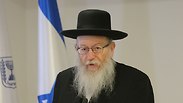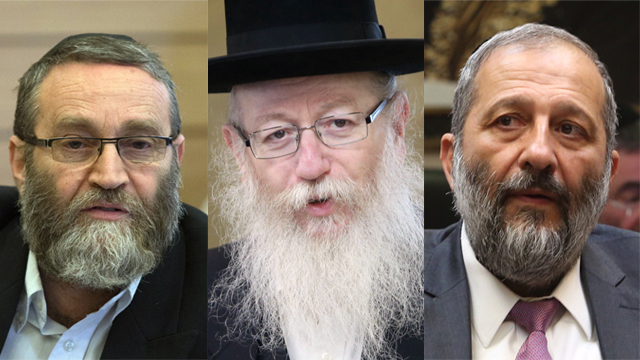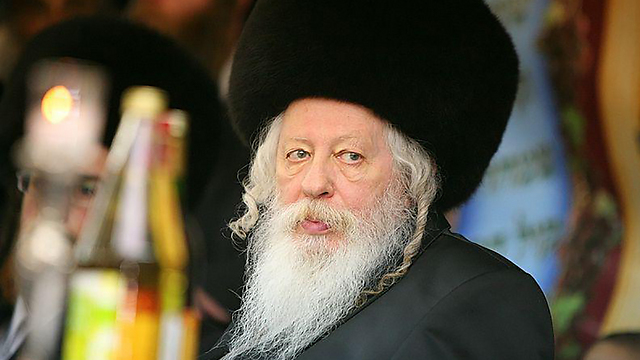
Haredim soften stance on IDF draft law
Council of Torah Sages for Agudat Yisrael decides its MKs will vote against the legislation, but won't resign when it passes to avoid early elections; 'The tendency is not to topple the government because of the draft law,' says inside source.
The Council of Torah Sages for Agudat Yisrael, a faction in the United Torah Judaism party, has softened its stance on the IDF draft bill proposal that is threatening to topple the government.
The Council met Sunday to discuss the legislation, deciding not to order its MKs to quit the government and send Israel to the polls early.
"We will vote against (the legislation), but we will not resign when the law passes," said an inside source. "The tendency is not to topple the government because of the draft law."

The political system was waiting for the results of the meeting, with sources saying there was no point in convening a meeting of the coalition party leaders before the Council of Torah Sages issued its decision on the issue of enlistment of ultra-Orthodox youth to the IDF.
The members of the Council—the most prominent being the Rebbe of Gur, Rabbi Yakov Aryeh Alter—form the spiritual leadership of the Chassidic faction of United Torah Judaism, headed by Deputy Health Minister Yaakov Litzman, the main and more influential of the two Ashkenazi Haredi groups that make up UTJ.
Litzman himself has said in recent months that he will not allow the law to pass, even threatening to resign. The Degel Hatorah faction in UTJ, led by MK Moshe Gafni, and the Sephardic Shas party led by Aryeh Deri, tend to accept the present outline of the bill, wishing to avoid an election cycle with the subject of Haredi IDF enlistment at its center.
Another reason for the softer position of Minister Deri and MK Gafni is that according to a High Court ruling, if an alternative law is not approved by the beginning of December when the existing law expires, all yeshiva students are ostensibly subject to compulsory service.
On the other hand, Agudat Yisrael toughened its positions even before the proposal was submitted, and Litzman even threatened on several occasions to topple the government if it was approved in the second and third readings—despite the political gamble and the threat of Torah scholars being enlisted into mandatory IDF service.
Defense Minister Avigdor Lieberman reiterated to Ynet on Sunday morning that he would not agree to any change to the existing bill proposal, which was formulated by a professional team in his ministry.
"I don't think elections are currently the most necessary thing for the State of Israel," Lieberman said. "It is always possible to make excuses, the bill passed in its first reading by a large majority, and there is no problem in passing it in a second reading."
Prime Minister Benjamin Netanyahu said Sunday morning the proposal "is a good and balanced law. It balances between the needs of the military, which prepared it, and, of course, the needs of the ultra-orthodox public."
"This law needs to pass. The time has come to put it behind us. This is my position. This also needs to be the position of the government, for the good of the country, of the ultra-orthodox public, and for relations between the ultra-orthodox and the secular," he continued.
"Therefore, I call on the Council of Torah Sages ... to make the right decision. This law is good for Israel."











